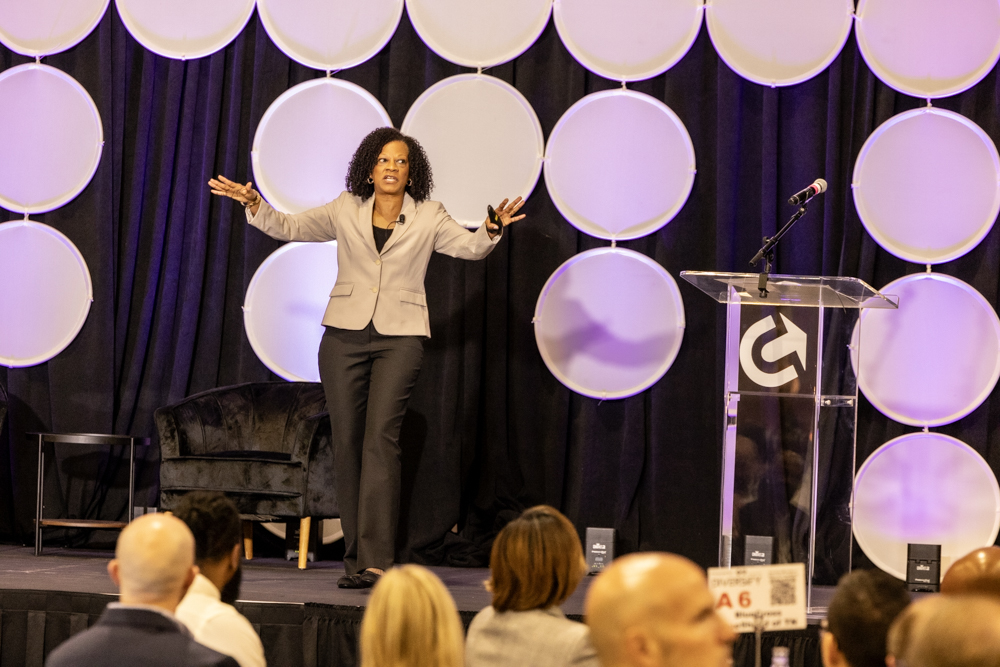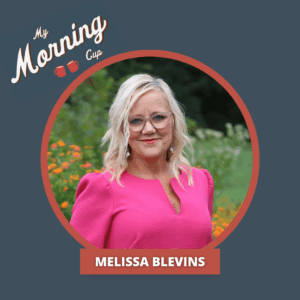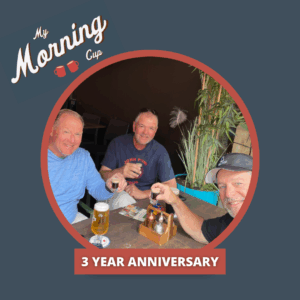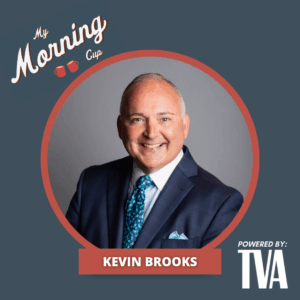On June 17, the Chattanooga Area Chamber of Commerce held its annual Diversify summit—an event centered on highlighting best practices for growing diversity and inclusion throughout the business region. This year’s keynote speaker was Juanita McDowell, who opened her speech with an all-too-familiar question: “Do you ever wish you had one more hour in the day?”
Through the trials and errors of her life, working with “Sam”—a man with $45 million in production who still manages to be home by 5 o’clock—and studying with key researchers in Germany, McDowell decided to take a deep dive into the importance of goal setting. How do we get that extra hour back? What is a smarter, more sustainable way to succeed without sacrificing quality rest or family time for a few more answered emails? The answer: her Get S.T.I.C.K.Y.™ program.
According to McDowell, if you want your goals to stick, desire is the key starting point. You have to want it. If your desire does not transcend your doubt, the foundation of your goal will not be strong enough. To see results, you must first believe that you are the kind of person who can and will achieve it, then use that belief to fuel your vision.
Once your desire is recognized, writing the goal down is the next crucial step. This is because the act of writing activates both the left (logical) and right (emotional) sides of the brain. “So when you write it, you feel it, and when you feel it, you move toward it,” McDowell says. According to research, people who write down their goals are 42% more likely to accomplish them. Therefore, it is important to know how to formulate these statements. McDowell encourages us to reach for something bigger. Give yourself permission to stretch, for when you stretch a goal a little beyond the reasonable, there is more energy attached to it. When more energy is required, you get excited, and excitement gets things done.
However, such a lofty objective runs the risk of becoming overwhelming. This is where S.T.I.C.K.Y.™ comes in—McDowell’s strategy for breaking bigger things into smaller, more manageable steps.
First, your goal must be specific. Rather than “I’ll do better,” think, “I’ll raise my production rates by 30%.” Then, it must be time-bound; do not give yourself “until the cows come home”—say you will get it done by the end of the month or by October of next year. Give yourself a realistic window of opportunity.
Then, your goal must be inspirational. McDowell says, “Inspiration comes from two different places: you borrow it, and you carry it.” But in order to borrow or carry anything, you have to know your why. Why you are doing something is what will give you the strength to keep doing it. McDowell mentions Markita Andrews as a model for this philosophy. Andrews was raised by a single mother who was determined to save up enough money to send her to college. Once she graduated, her mother said she wanted Andrews to take her on a trip around the world. At age 13, the girl saw an opportunity to grant her mother’s wish a few years early. All she had to do was sell the most boxes of Girl Scout cookies, and she would win a trip around the world for two. Three thousand five hundred twenty-six boxes later, Markita Andrews became known as one of the youngest and greatest saleswomen in the nation—all because she had a strong why to carry her inspiration.
Next, your goal must challenge you. McDowell states, “If it doesn’t challenge you, it won’t change you. If it doesn’t change you, you’re not going to grow. If you don’t grow, then why are we here?” Since growth is the main purpose of setting a goal, without a challenge, it remains empty.
Finally, a goal that sticks is one that is kept visible and yields results. Visibility is very important because, according to McDowell, “where attention goes, energy flows.” Therefore, keeping your statement or vision board where your attention is drawn to it will help hardwire it to the front of your awareness and maintain a flow of energy and effort. And, of course, the fruits of your effort come with the results you yield. A product of achievement is how you know your goal has finally stuck.
















